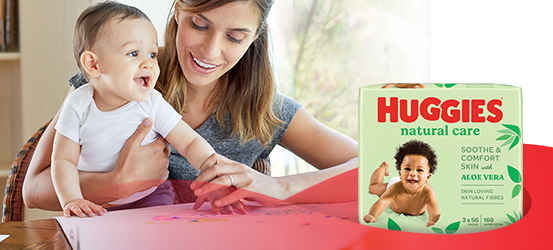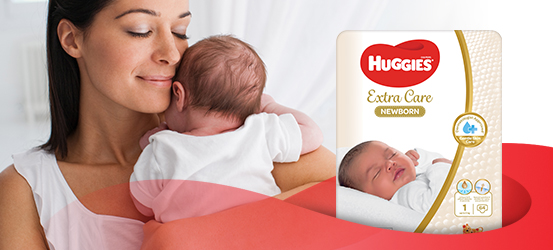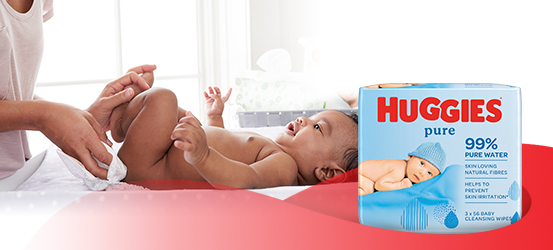Sleep tips
Getting enough of it, surviving on too little of it, there's no denying sleep is a hot topic in parenting. We know your baby is an individual with their own quirks and unique personality, so what works for one child won't always work for another. But we've worked with some experts in the field to provide you with the best advice and support to ensure that your household is getting some decent sleep.
Developmental stages and sleep
Some babies settle to sleep easily and don't need much help from their parents. Others are a little more resistant and need soothing and persuasion to calm down and drop off to sleep. For lots of babies, actually staying asleep for longer than a few minutes is something they need to learn.
There's no "one size fits all" approach when it comes to settling management. Every baby has their own little personality and temperament which influences a range of behaviours, including sleep. Similarly, every family will have their own ideas on what is normal and acceptable. If your baby is happy and thriving and their sleeping patterns are working for you both, there is no need to change what you are doing. If not, here are some options and tips on how to improve your baby's sleep habits. It is useful to know what your baby's usual sleep cycle is and the typical tired signs they exhibit. By recognising them you will be able to implement appropriate settling measures for them.
Remember, your internal biological clock determines how you move in and out of waking and sleeping during a 24 hour cycle. This rhythm takes many months to develop and newborns will often have their day and night mixed up. This, in addition to them developing regular sleep cycles, is something that will take time and patience in resolving.
|
Age |
Typical sleep cycle |
Signs of tiredness |
Typical number of sleeps during day |
|
0-3 months |
Typically sleep 16-18 hours a day. Usually only awake 2 hours at a time |
|
4 or more. These will vary in length from short naps to a couple of hours. |
|
3-6 months |
Sleep for around 15-16 hours a day. |
|
2 to 3.These will usually be broken down into two shorter naps and one long one. |
|
6-12 months |
13-14 hours during a 24 hour cycle, broken down into 10-12 hours overnight and 2 or 3 sleeps during the day of 1-3 hours |
|
2. This will usually consist of one short nap and one long nap in the morning or afternoon. |
|
1-2 years |
12-14 hours during a 24 hour cycle. Usually one day sleep of about 2 hours. |
|
1. This usually lasts for a couple of hours and takes place in the middle of the day. |
Baby sleep and safety
The safety of your little one is paramount. In order to reduce the risk of Sudden Infant Death Syndrome and to ensure they sleep safely, it is vital to follow the safe sleeping recommendations from the SIDS and Kids Association.
1.Put baby on their back to sleep, for every sleep, from birth.
2.Sleep baby with head and face uncovered.
3.Avoid exposing infants to tobacco smoke before and after birth.
4.Provide a safe sleeping environment.
5.Sleep baby in their own safe sleeping environment next to the parents' bed for the first six to twelve months of life.
Baby settling methods
It is important to think about how valuable sound sleep is to your baby. Good sleeping habits support your baby's growth and immune function. When they are well rested, being around them is generally more pleasant. Looking after a tired and cranky baby is hard work.
Aim to place your baby into their cot when they are sleepy but not quite asleep. Babies who are rocked, cuddled or fed until they go to sleep learn to associate these factors with settling.
Aim to be consistent and predictable with how you settle your baby. Placing them into their cot for all sleeps gives them the message this is where they go to sleep and where they will wake up. Regular routines before settling help babies to feel secure and safe.
Good feeding habits directly influence sleeping habits. Babies who are thriving and getting enough nutrition generally have better sleeping habits than those who don't.
Babies whose routine has changed, who are sick, who have reached a new developmental stage or who are feeling insecure will not sleep as well as they would normally. Aim to be patient, sensitive and kind when you are settling them. Your emotions will have an effect on how safe your baby feels.
20 Top tips for settling your baby
1. A warm bath and then a tummy massage in a clockwise direction often helps an unsettled baby to calm down and feel more relaxed. A warm, wet washer over their tummy during bath time helps them not to feel exposed and vulnerable.
2. If your baby seems to have a tummy ache, try moving their legs in a bicycle fashion and gently bring their knees up to their chest. These movements often help with passing wind or doing a poo. Talk to your baby while you are doing this and reassure them.
3. If baby is unsettled, complete the following checklist: are they hungry? Are they wet? Are they too hot or cold? Do they have a temperature?
4. Keep essentials like nappies, towels and a change of clothes nearby at all times. Many newborns dislike being changed and being able to do so quickly and efficiently helps make the process less stressful for everyone.
5. Try patting baby while playing the radio slightly off the station or near a noisy fridge.
6. Make sure the room your baby sleeps in for longer naps is dark and quiet. Blackout blinds are great for this.
7. Look for your baby's tired signs, as they will let you know when they need to go to sleep. Yawning, grimacing and scrunching their face up, getting grumpy and not wanting to play are all classic signs.
8. Babies who are tired, already fed and sleepy, though still awake when they are placed into their cots, generally stay asleep for longer periods. Babies who are cuddled to sleep and then placed into their cots often wake after twenty minutes when they progress into a lighter sleep phase.
9. Make sure your baby gets plenty of natural light during daylight hours and that their room is kept dark at night. This will help them develop a day and night rhythm.
10. From birth, aim to place your baby into their cot to go to sleep. If they learn that this is where they settle off to sleep and where they wake up, it avoids confusion for everyone.
11. Try not to feed your baby to sleep. If they associate feeding with settling they can learn to rely on this to go to sleep. Sleepy babies don't feed as well as when they are awake and it is easy to get into a cycle of snacking and then napping.
12. The safest place for your baby to sleep is in their own cot, beside your bed for the first twelve months of their life.
13. Many parents follow rituals of safe keeping when they settle their babies. These can include lullabies, saying a prayer, kissing their baby in a particular way or even the order in which things are done. These little habits define us as unique and form early patterns of family behaviour.
14. Many babies like to suck on a dummy when they are settling. Unless the dummy becomes a problem or your baby is waking up many times because it is falling out of their mouth, they are harmless.
15. Slings and front-packs are a good way for parents to keep their unsettled baby close but still have their arms and hands free. Make sure your baby is strapped in well and the sling is properly attached to avoid any accidents.
16. Babies who are resistant to settling in their cots often like to be pushed in their pram or lie in a bouncer chair. Repetitive, smooth movement helps to lull restless babies to sleep. There will be times when the only option is to rock your baby to sleep for everyone's sake. Every now and then this is fine. Try not to feel you've done anything wrong or set yourself up for hard times ahead.
17. Babies who are distressed and crying often need their parents to help them calm down. Young babies can't regulate their emotions without support and need to feel secure and safe before they are able to drift off to sleep.
18. Babies love to be rocked when they are going to sleep and the obvious place for this is in their parent's arms. However, if they only learn to go to sleep with movement, when they are placed into a stationary cot waking up will be common.
19. Check to ensure that household cleaning products and perfumes aren't irritating your baby.
20. Keep stimulation and loud noise to a minimum in the afternoon and early evening to help your baby wind down towards bed time.

















